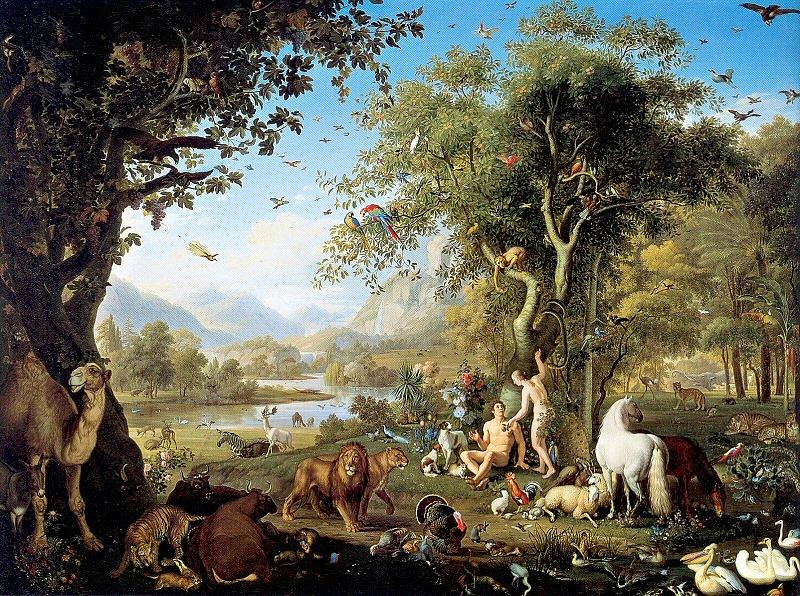Spiritual Sunday
Among the many things that confuse me about rightwing Christian fundamentalists is their love of guns. “God, guns, and gays” was the way their voting obsessions were characterized for a while, and if “gay” is expanded to LBGTQ and if one adds abortion and Critical Race Theory to the list, it still pretty much captures many of them. As this weekend’s Christian-inflected NRA Convention reminded us, gun love continues as strong as ever, despite the recent mass shootings in Buffalo and Uvalde. How God and weapons of war can come together in a religion that supposedly has love at its core is unfathomable to me.
It starts to make more sense, however, if one sees gun-loving Christians driven by an Armageddon-level of fear. Sarah Posner, who studies the fundamentalist right, notes that many believe in the Great Replacement Theory, which white supremacists, rightwing authoritarians, pundits on Fox News (especially Tucker Carlson), and various mass killers (including the one in Buffalo) also ascribe to. As Posner explains,
Replacement theory is not so much a “theory” as a racist ideology used to stoke rage that white Christian culture is under threat by an invasion, engineered by Jews, of non-white foreigners who will both pollute and dilute a nation’s heritage and culture.
Connected with this rage is the conviction that the End Times are near. In a parody of Jesus’s message that love is more powerful than death, these believers think that they need not worry about either death or this world because God will lift them up as everyone else burns in a fiery conflagration. Among my many problems with this belief is how God gets used as a life insurance policy. We need not grapple with the problems of living because death will give us everything we need or want. Or to shift analogies, dismissal of this world’s importance seems to give one the freedom to abuse the world like a rental car: you think you can walk away from it, consequence free, when you’re done with it.
In my view, this is a misreading of Jesus’s mission, which was to establish the kingdom of heaven in life, not in death. Lucille Clifton ascribes to this mission in her final collection of poetry, entitled Book of Days (2006), in which she reflects on spiritual matters.
The book begins with a poem I considered sharing next week for Pentecost given its vision of a born-again relationship with the world. Like many of the lyrics in Book of Days, it is grounded in Garden of Eden imagery.
birth-day
today we are possible.
the morning, green and laundry-sweet,
opens itself and we enter
blind and mewling.
everything waits for us:
the snow kingdom
sparkling and silent
in its glacial cap,
the cane fields
shining and sweet
in the sun-drenched south.
as the day arrives
with all its clumsy blessings
what we will become
waits in us like an ache
Yet instead of cherishing this garden and its, we desecrate it. Or as Clifton puts it in “godspeak: out of paradise,”
what more could you ask than this
good earth, good sky?
you are like mad children
set in a good safe bed
who by morning
will have torn the crib apart
and be howling on a cold floor
among the ruins.
Along the same lines, in a very Dante-esque message, Clifton’s God points out that we don’t need Her to castigate us for our sins. We’re all having too much fun punishing each other, thank you very much:
godspeak
little ones
small and treacherous,
why would you believe that I punish you
who punish each other relentlessly
and with such enthusiasm
A passage from Richard Wright’s autobiography Black Boy comes to me when I read this poem:
There were more violent quarrels in our deeply religious home than in the home of a gangster, a burglar, or a prostitute, a fact which I used to hint gently to Granny and which did my cause no good. Granny bore the standard for God, but she was always fighting. The peace that passesunderstanding never dwelt with us. I, too, fought; but I fought because I felt I had to keep from being crushed, to fend off continuous attack. But Granny and Aunt Addie quarreled and fought not only with me, but with each other over minor points of religious doctrine, or over someimagined infraction of what they chose to call their moral code. Wherever I found religion in my life I found strife, the attempt of one individual or group to rule another in the name of God. The naked will to power seemed always to walk in the wake of a hymn.
Back to Clifton, who observes that we don’t need God to condemn us to hell. We’re already finding our way there on our own:
man-kind: digging a trench to hell
did i go deep enough?
i’ve exhausted the earth,
the plentiful garden,
the woman,
myself.
i’ve exhausted even the darkness now.
are you not done with me yet?
The last poem in Book of Days calls out—once again as though with the voice of God—those who indulge in righteous fury, even as they squander the precious gifts they have been given:
godspeak: kingdom come
you, with your point-blank fury,
what if i told you
this is all there ever was:
this earth, this garden, this woman,
this one precious, perishable kingdom.
Or to continue with the Jesus allusion, “thy will be done, on earth as it is in heaven” (emphasis mine).


